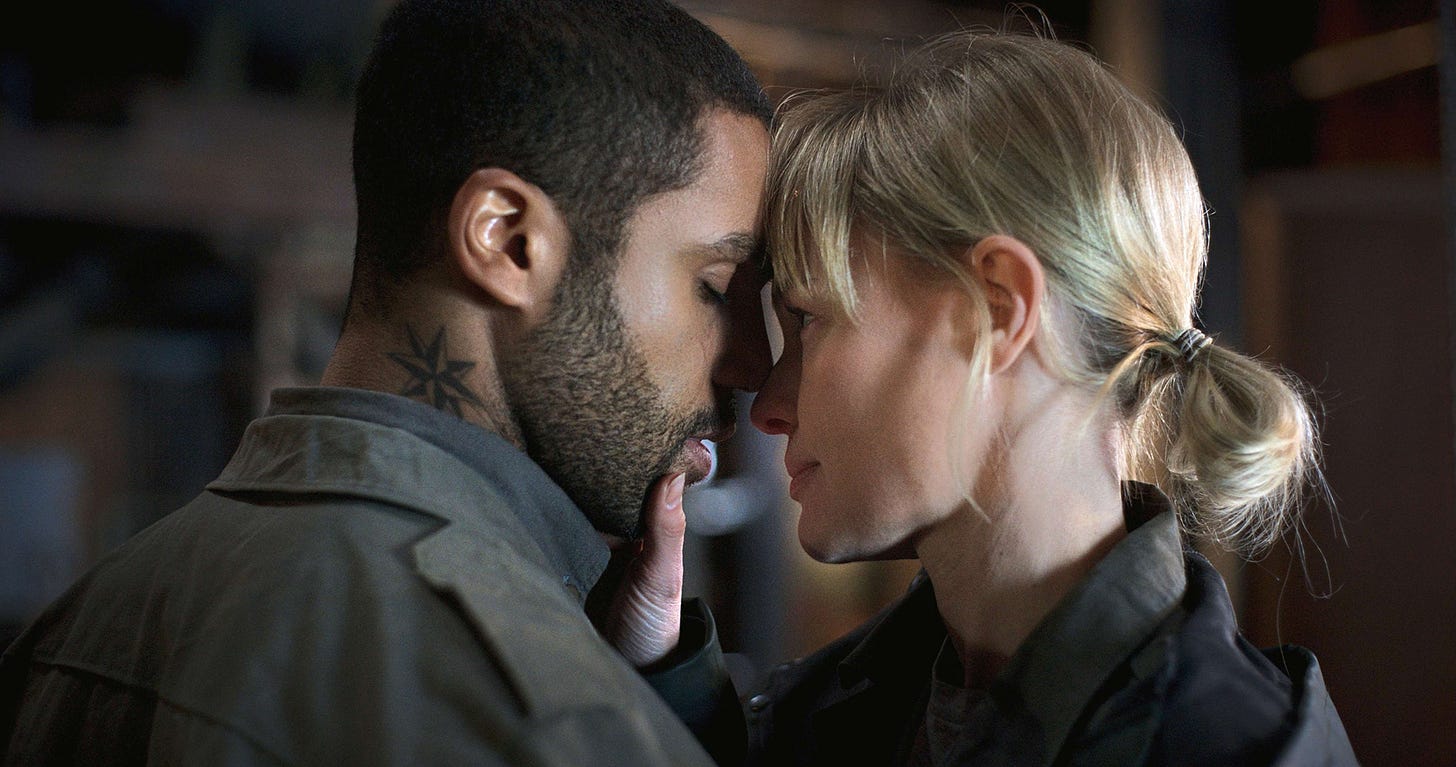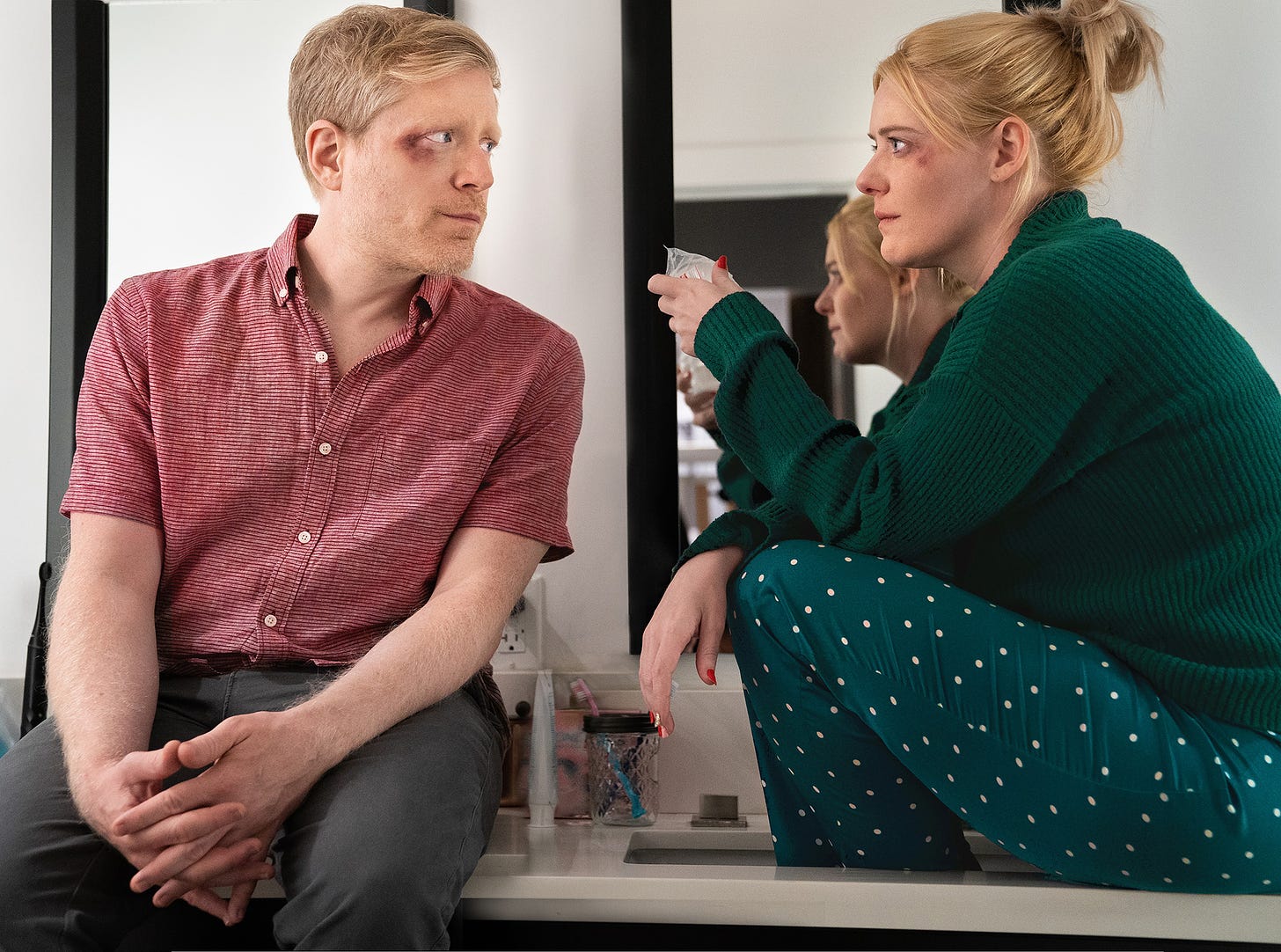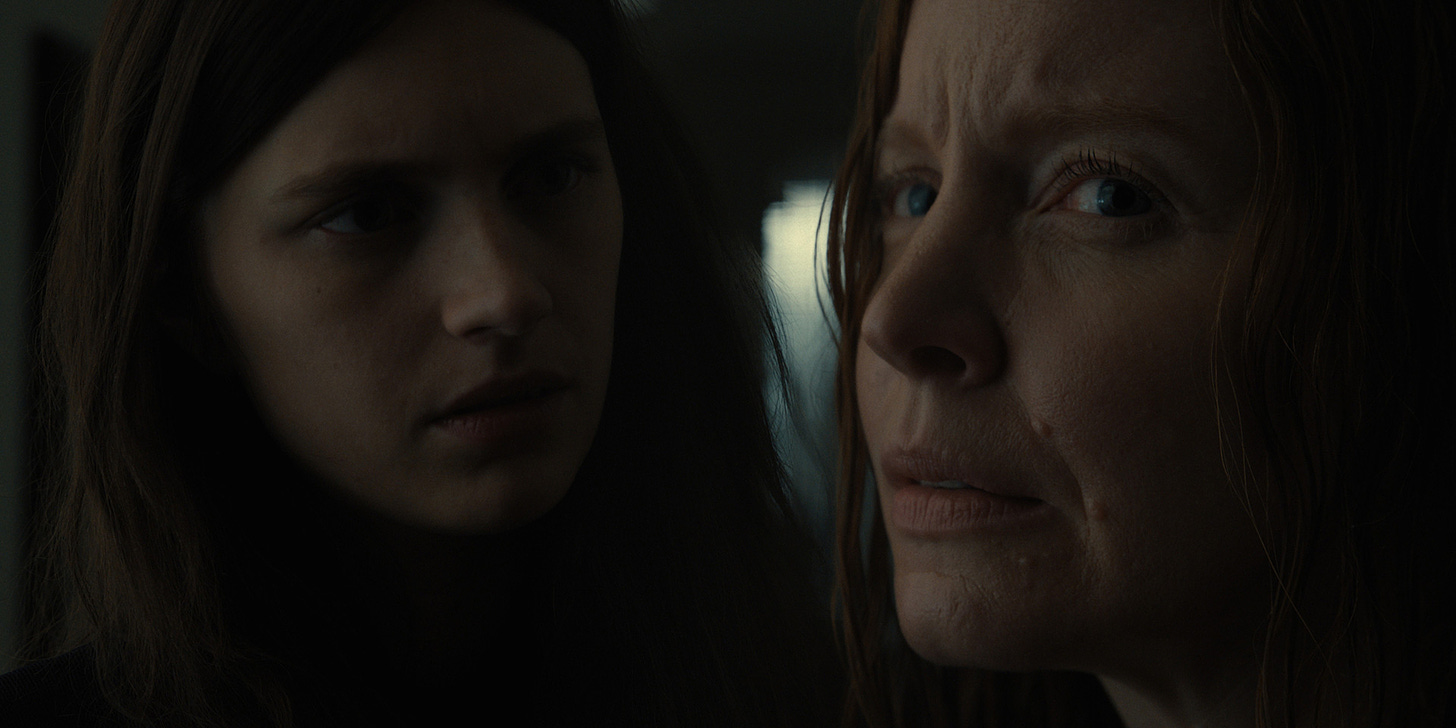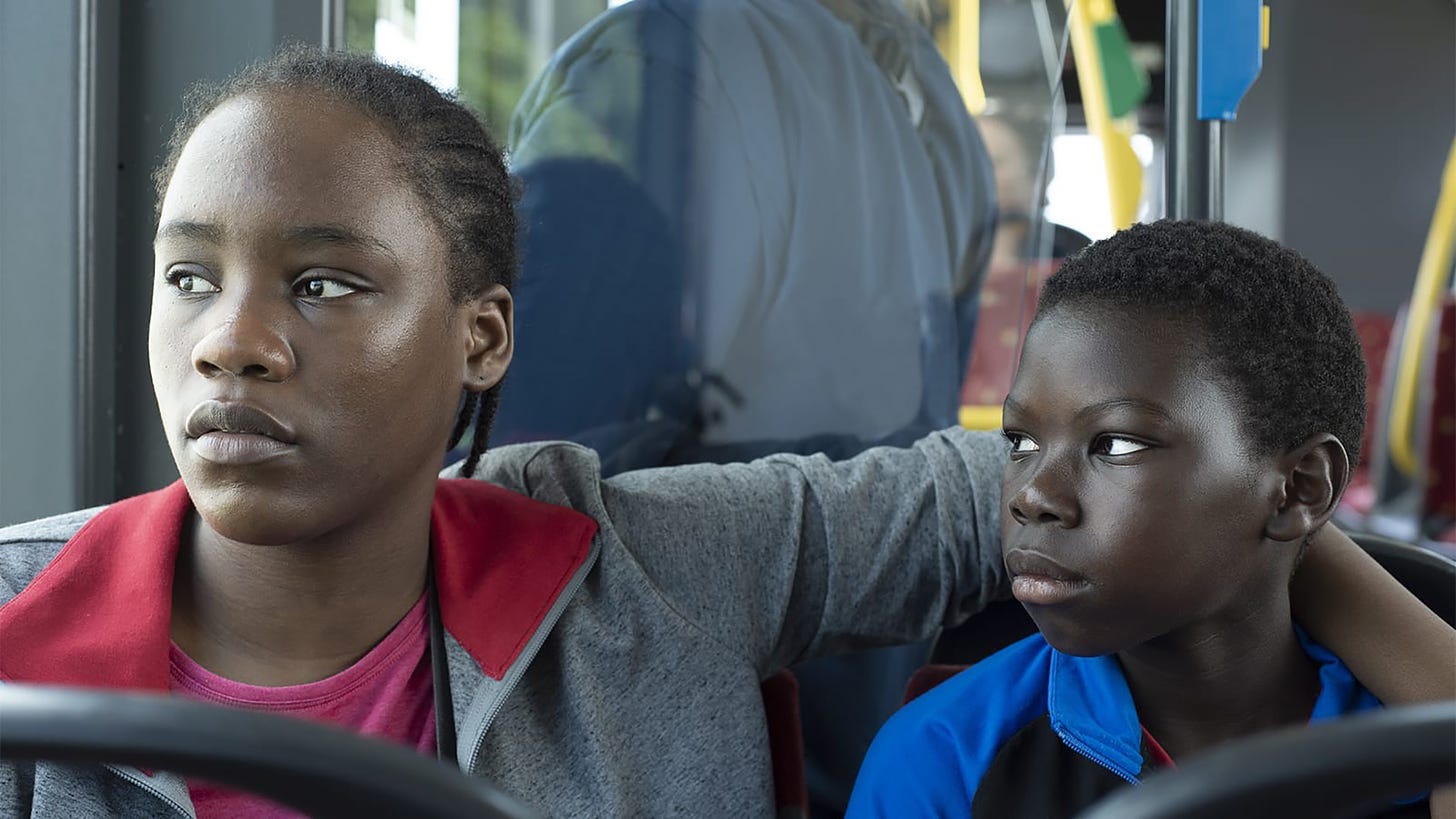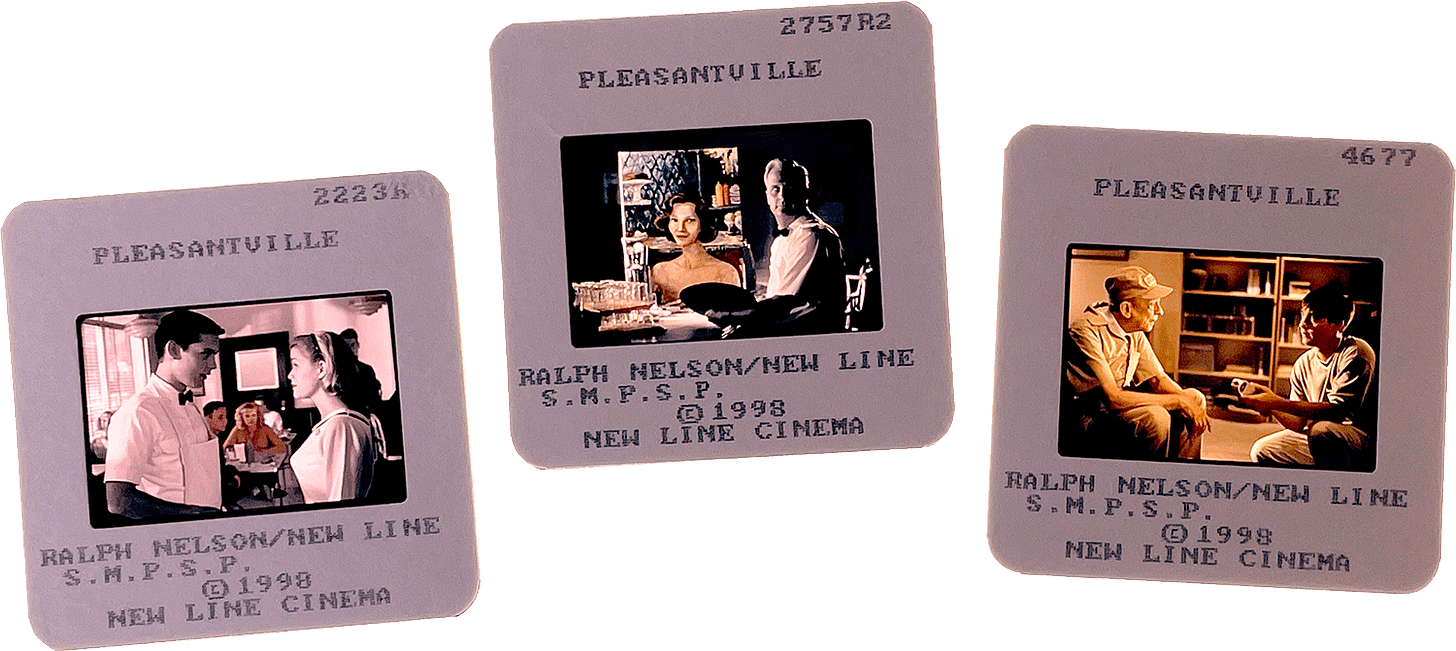I was joking last week about there not being a lot of chatter yet for next year’s Oscars only to have the SXSW screening of AIR have everyone raving shortly thereafter. If you think Amazon doesn’t know what they have, turn on an NCAA hockey game and find yourself watching the trailer every single commercial break. I’m not exaggerating. I must have seen it ten times during the Canisius/Minnesota game. Everyone is hoping Ben Affleck has that ARGO magic back.
Other than that, it seems most of the current buzz lies with the small screen. SWARM. LUCKY HANK. RABBIT HOLE. Lots of new shows looking for viewers and returning favorites stealing some back. I’m looking forward to catching them all, but I find myself in need of binging these days. Why watch four episodes and then wait a month for four more to upload to the press site when I can wait until the last four episodes arrive watch the whole thing in a few days?
As such, I haven’t even started the third seasons of TED LASSO or THE MANDALORIAN. I’d rather wait. It’s not like I don’t have enough movies to fill my time. I choice to go with SUCCESSION as a result—a show of which I’ve never seen an episode. Fingers crossed I’ll catch-up right before the finale airs.
What I Watched:
LAST SENTINEL
(now in limited release and on VOD)
It’s 2063 and the water has risen to the point where only two small continents of land remain. It doesn’t matter what countries that land came from or whose people hold control—two entities separated under a cloak of mystery will always possess animosity towards and fear of the other. That’s the quickest and easiest way to keep people in line. Make them afraid of the unknown so they don’t have time to be afraid of that which hurts them at home. It becomes even easier still when nuclear weaponry is involved. Because as long as one has it, they will forever wonder if the other does too. And discovering they don’t will never be the end of the fight since it would only mean you have to remain extra vigilant to ensure they don’t take yours. Survival becomes secondary to annihilation. Nothing is out of bounds.
Therein lies the premise behind director Tanel Toom and screenwriter Malachi Smyth’s LAST SENTINEL. Hendrichs (Thomas Kretschmann) and his team of volunteers (Kate Bosworth’s Cassidy, Lucien Laviscount’s Sullivan, and Martin McCann’s Baines) have spent the last two years at a strategically placed outpost housing the last nuclear bomb on Earth. With apocalyptic storms constantly brewing on the open sea, there’s no way for their enemy to reach their homeland without first passing their station. So, they wait and watch, doing their job until they eventually go home. Except this shift ended three months ago and still no one has come in relief. So, they wait, watch, and grow restless. They let doubt and paranoia rule their actions until an abandoned ship presents the possibility of escape. Do they go and find out what went wrong? Or do they stay and defend a homeland that might already be gone?
It’s a familiar powder-keg of a suspense thriller with the threat of outside forces looming and the more pressing intrigue of changing tides inside giving pause to remember the biggest danger almost always comes from within. Can Hendrichs’ unwavering fealty to the job let him see the opportunity that’s been presented clearly or will he continue putting the mission over his people’s lives? Does the obvious romantic relationship that’s blossomed between Cassidy and Sullivan cause them to hesitate and/or sacrifice the bigger picture for personal happiness? How about Baines’ increasing hostility and stir-crazy nature making them all have to look over their shoulder? There are as many straightforward possibilities to derail what could be their only way out as there are conspiratorial theories once everyone steps back and surveys the situation. Because after forty years of silence, all they have are assumptions and orders.
And while the inevitable identification of an enemy force pulling strings isn’t surprising, it’s okay because that’s not Toom and Smyth’s intent. Whereas you might assume this low budget Estonian production would devolve into an “us versus them” mentality ripe for fireworks, the script refuses to deviate from its anti-war wake-up call approach. As many discussions on-board explain, the only difference between sides is their target. Both want to live. Both are afraid. Both are raised to hate. Why? Because it’s beneficial to those in power. If they rule as “protectors”, their citizens will give them loyalty and die for the cause. The only real potential for a ceasefire is if those citizens finally become loyal to themselves. To humanity. It may be an overly sentimental and hopeful message, but I believe it works. If nothing else, it was nice to pretend hearts and minds might still change.
- 7/10
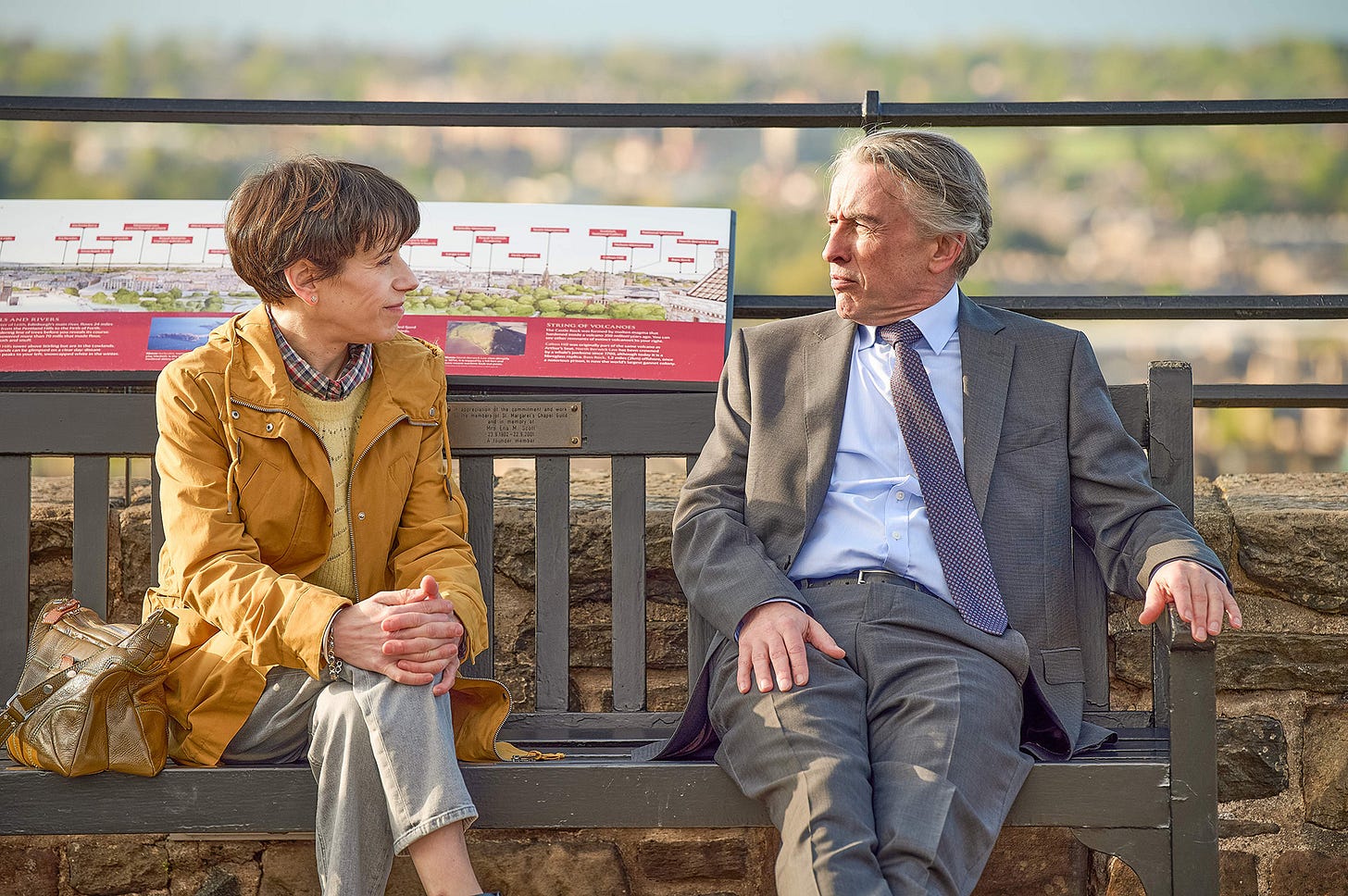
THE LOST KING
(now in theaters)
Adapted by Steve Coogan and Jeff Pope from the subject’s own book THE SEARCH FOR RICHARD III, Stephen Frears’ THE LOST KING tells how Philippa Langley’s (Sally Hawkins) oft-disregarded mother-of-two suffering from ME went on an adventure to find Richard III’s remains. Inspired by the Shakespeare play and personal experience enduring demonization for a disability, she becomes infatuated with the idea of clearing the so-called usurper’s name from the slander his predecessor canonized. As a non-scholar devoid of allegiances beyond to Richard himself, Philippa merges academic findings of multiple sources to parse fact from fiction. Unfortunately, no one cares what an amateur “fan” has to say. The person who discovers his burial plot, though? That’s someone you cannot ignore.
Except, of course, that institutions with power ignore whomever they want. Despite the better story being that Philippa defied all odds to do what no one could for five hundred years, it’s difficult to cut through the noise of a university that was lukewarm to her pitch suddenly taking full credit for the endeavor. There’s surely more to that fight than the third act of the film provides (choosing instead to simply paint the school’s face, Lee Ingleby, as a villain while Philippa ensures Richard stays her focus), but credit was never the point. This is about finding purpose and proving to herself that she isn’t the labels being thrust upon her. It’s about following her gut and feelings and seeing that history is never without bias or institutions without propaganda. Philippa seeks only to set the record straight.
It’s a journey of magical realism with Richard III (Harry Lloyd, the actor from the aforementioned play grafted into her subconscious) as her guide—a choice that creates space to question Philippa’s sanity even if only for a laugh. The device is cutely endearing if unnecessary in such a literal form. A lot of what transpires feels similarly half-baked whether her work friends (pawns to the metaphor of the establishment sullying her name like England did Richard’s) or her ex-husband (Coogan’s John being a genuine prick until suddenly he’s not). It’s the sort of narrative conveniences that were missing in Frears and Coogan’s previous collaboration PHILOMENA. The feel-good sensibility remains, it’s just a bit messier in its hope to endear Philippa’s story to a wider audience. Thankfully Hawkins is too good to care much.
I was invested in her mission and the reasons she would be fed up with the life dictated for her as a forty-something woman with chronic fatigue who’s always being looked over. You want her to succeed regardless of the mission itself (beyond its historical value) because she really is doing it with a grassroots impulse steeped in determination and genuine kindness. Does any of this happen if Philippa doesn’t bring Richard Buckley (Mark Addy) a cake? Maybe not. Passion is huge. It’s what we assume turns John around to help rather than mock. It’s what gets the chair of the local funding committee (Amanda Abbington) to go out of her way to pull strings. And it gets her to quit her job and follow a dream—even if the process on-screen is reductively built from the truth for maximum sentimentality.
- 6/10
RHINO [Nosorih]
(now on VOD)
Oleh Sentsov’s RHINO is worth a watch for its opening twelve-minute faux one-take montage of Vova’s, aka Rhino, (Serhii Filimonov) childhood in 1980s Ukraine. What starts with him as a little boy huffing and puffing his way through the neighborhood only to poke a kid’s eye out with a stick when a group of bullies jumps him moves smoothly through the mounting tragedies and hardships he and his family faced. There’s Dad’s prison stints and attempted murder of Mom, his sister’s pregnancy and failed relationships, and his brother’s military service and death in the streets as a gangster upon his return. And all the while Vova is in the background, scrawny but feisty and absorbing every single hit until adulthood arrives to make him just as vicious as the rest.
It’s his temper that starts Rhino’s own descent towards oblivion. He finds himself punching out his own guys or running headfirst into a brawl he can’t win anytime he drinks too much. So, it’s for survival that he contacts Tucha (Georgiy Povolotskiy) to join his crew with best friend Plus (Yevhen Grygoriev). It protects him from an enemy’s recourse (Vladyslav Derduga’s Skull) while also providing the means to give Maryna (Alina Zievakova) and their daughter a nice life. As the violence and money increases, however, so too does the need for power and control. Soon his own family is met with worse horrors than the ones we witnessed during his adolescence. And this time he has no one to blame but himself—something he admits when telling his story to an unnamed man (Evhen Chernykov) sitting beside him in his car.
This isn’t your usual gangster film, at least not below the surface. Rhino does the types of things you expect (murder, adultery, etc.) while facing the consequences head-on, often growing meaner and more reckless the greater the hits taken. But the movie sets itself apart in Sentsov’s ability to neither glorify nor vilify his lead character. Rhino isn’t a good person, but he does earn our sympathy both because of the life he was born into and the crippling guilt he carries as a result of the actions he commits of his own volition as a product of that life. The whole is more or less a flashback being told with hindsight and necessary perspective despite never being watered-down or altered to shine its narrator in a better light. Rhino isn’t interested in that. The ghosts of Maryna and others haunt him too often to pretend he isn’t the monster society believes.
What we’re watching is thus a life that cannot be forgotten by the victims, survivors, or Rhino himself. It’s a journey filled with blood and bodies that he must learn to accept. And we feel its burden both in his face (Filimonov is as emotionally expressive as he is fiercely dangerous) and his movements (something as small as his refusal to step foot in a church knowing his soul is all but gone). It’s a graphic drama that supplies a continual string of death and destruction, but none of it occurs without its impact being felt in full. That also means none of it is left unpunished either. These characters know what they’re doing. They’ve accepted their fate. To repent won’t therefore get Rhino into Heaven, but it might just stifle the guilt-driven psychological unrest for a moment of silence before he inevitably awakens in Hell.
- 8/10
SCRAP
(currently on festival circuit; next up Phoenix Film Festival, 3/30 - 4/3)
Society demands children set goals. It’s a byproduct of living in a capitalist country driven by career-oriented lifestyles wherein we inherently vilify the working poor as a means of inspiring kids to want more and be more. It’s how the working class can consistently delude themselves into believing they’re actually part of a middle class their paycheck-to-paycheck existence isn’t close to reaching. As such, I’ve known many people who, despite having worked during high school and college in part-time jobs, refused to even consider working one again upon graduation. It was as though they forgot half their co-workers were adults or that most also went to college. Whether it be pride or capitalist brainwashing, they couldn’t bring themselves to exist at a station below the life they swore they’d have.
Enter Beth (Vivian Kerr). Recently laid off from her public relations job, she has left her daughter Birdy (Julianna Layne) with her brother (Anthony Rapp’s Ben) and sist-in-law (Lana Parrilla’s Stacy) under the auspices of a “work trip” when she is actually sleeping in her car while desperately running around Los Angeles to high-demand job interviews with hundreds of similarly qualified applicants. Would things be different if she simply told Ben the truth? Of course. He would invite them in with open arms since he practically raised her after their parents died. But that’s part of the problem. We’re supposed to exit our guardians’ shadow. We’re not supposed to need their protection forever and anyone who does is unjustly deemed a failure. Assistance therefore equals pity. A safety net to get back up quicker gets rejected for a struggle that some tragically never escape.
You should know straight off that Kerr’s SCRAP (she also wrote and directed it) understands its privilege. The fact Beth has a well-to-do brother who is willing to support her shouldn’t be lost here. But it also shouldn’t negate what she is going through as a single mother trying to scrape by while a mounting sense of shame piles up. Kerr does a very nice job of using juxtapositions to ensure that we know she knows this is neither the worst-case scenario nor the best. Scenes with a homeless woman who has nowhere to go or a suburbanite blind to the fact the woman he’s helping in the grocery store today was the one he called the cops on yesterday provide the complexity and universality of the situation. It can happen to anyone. We’re all one tragedy, medical expense, or layoff away from poverty.
As such, the film never judges beyond expressing the reality that asking for help isn’t weakness. Any reactions to what’s happening with Beth are therefore born from the other person’s frustrations with their own lives since they don’t know exactly what she’s going through (she hasn’t told them and never does—at least not everything). Ben is dealing with career drama. He and Stacy are going through the rigors of fertility cycles. Even Beth’s ex (Brad Schmidt’s Joshua) is suddenly dealing with the guilt of leaving her the second she became pregnant years ago. All these people are in different states of psychological unrest to the point where Beth wonders if the truth might make her even more of a burden than she’s already become. She must first accept her new reality and its resulting sacrifices before moving forward. We can’t control life. We can only control how we live it.
It’s an important message told with a wealth of empathy that never disappears even as Beth spirals deeper and deeper into depression and denial. It’s also an honest portrayal of desperation. Because Beth should be desperate enough to go to a mall job fair and earn a paycheck, but shame has her answering Joshua’s phone calls instead since taking his money would keep up the appearances that being caught working retail couldn’t. And Kerr is very good in the role. The absent-minded compulsive spending. The lies to family and strangers alike proving she’s really only lying to herself. This is a flawed character doing the best she can within an equally flawed mindset. It’s only when she realizes happiness isn’t reliant upon “perfection” that she can begin to dismantle society’s baggage and finally breathe.
- 7/10
SERVANT: SEASON 4
(now streaming on AppleTV+)
I wonder how much of what SERVANT is came from its creator Tony Basgallop and how much from its executive producer/showrunner M. Night Shyamalan. Because the latter doesn’t get a “created by” credit yet he’s the one calling the shots—saying he planned for six seasons before finding a way to do it in four. Not that it matters, of course. Whoever was responsible for what becomes moot when you step away and judge the work as a whole. And that’s especially true for a show that one deems a resounding success. Some of my favorite episodes were actually written and/or directed by Ishana Shyamalan, so don’t count her out or any of the genre stalwarts who had their hands in the production. They hit the ground running and ultimately brought it all home too.
You can get a sense of Season 4’s tone right from the start thanks to the mostly one-woman show that is “Pigeon” with Leanne (Nell Tiger Free) surviving an onslaught of Church of Lesser Saints pursuers hoping to end what they see as a rule of ungodly tyranny within the Turner (Lauren Ambrose’s Dorothy and Toby Kebbell’s Sean) home and the world at-large. It’s the perfect introduction back into the game with the stakes dialed up to eleven after how things were left last season. It both reminds us of how powerful Leanne has become and how she’s officially embraced it after spending the previous chapters conflicted about her place. That scared young woman is gone now. She’s ready to maim and kill whoever dares threaten to get in the way of her happiness within the Turner brood.
Except that they have become threats as well. Sean has hit his breaking point. He’s seeing now that everything he did to bring his wife back from the brink of psychosis is being undone by the cost of the Faustian deal made to do so. Dorothy is done with Leanne for obvious reasons (I won’t spoil the end of Season 3) and her brother Julian (Rupert Grint) is conversely fully on-board with her after his sexual relationship with Leanne has blossomed into something more. Can Sean get him to switch sides? Can anyone witness what’s happening around them and not believe that Leanne has supernatural powers beyond just bringing the Turner’s baby Jericho back to life? I don’t think it’s a surprise Shyamalan gravitated to Paul Tremblay’s KNOCK AT THE CABIN last year. This season and it share a lot.
Most of the episodes are about deflection and betrayal. Dorothy hires live-in nurses to combat Leanne’s stranglehold on “helping” (Barbara Kingsley and Denny Dillon’s Bobbie and Bev are a delight). Roscoe (Phillip James Brannon) and Uncle George (Boris McGiver) make memorable returns. And the homeless acolytes protecting Leanne from the CLS are always in the background to assist as well as disappear. Because Leanne’s strength is growing exponentially. At a certain point she must discover that she doesn’t need them to fight her battles anymore. That she doesn’t want them to fight. We’re talking about control now and whether the person she’s becoming is turning her into everything that guarantees what she wants (to live happily ever after as a surrogate Turner) will never come to fruition.
As often happens, the penultimate episode “Awake” is the showcase (M. Night directs). It delivers the moment we have been anticipating since the beginning: a confrontation with the truth. And not about Leanne. This was never a show about her or what she can or can’t do. It’s always been about grief. And denial. And guilt. So, putting Ambrose (who’s never been better), Kebbell, and Grint together to finally discuss what happened a year ago (to them) is ripe for emotion and drama. But that’s not to say the scene afterwards with Free (shot with impeccable blocking to ensure everyone is in frame regardless of being cropped/blurred/reflected) isn’t equally or more potent. In the end, everyone must make a choice, but it’s Dorothy’s that matters most.
There are a lot of unforgettable moments throughout the ten-episode run. It sometimes feels like it’s moving too fast, but slowing things down would demand a whole separate season to compensate. The speed is thus part of its success—especially once apocalyptic potential arrives. It lets us push through narratively while the writers and directors sprinkle in a slew of farewells for side characters whether by death or hopeful dreams (I’ll just say Tony Revolori continues to be an MVP in limited screen time as the much-needed purity of heart that balances the otherwise selfish and entitled cowards trying to escape the reality of their own failure). That duality ensures the conclusion is effectively bittersweet, bringing this pitch-black Mary Poppins to a close with torrential rain, brimstone, and a dash of well-earned forgiveness.
- 8/10
TORI AND LOKITA
(now in limited release)
The moment Lokita’s (Joely Mbundu) boss tells her younger brother Tori (Pablo Schils) to wait in the hall while he “talks” to her, any notion of suspense or intrigue is lost. They have been dealing drugs for Betim (Alban Ukaj) to earn money to both send back home and reimburse Firmin (Marc Zinga), the African smuggler who brought them into Belgium by way of Italy. Tori has his papers being a persecuted refugee. Lokita does not. She could get a real job if she did and help get out from under the exploitation of everyone around her, but the country will only grant them if she can prove Tori really is her brother. The fact Lokita won’t agree to a DNA test reveals the truth just as easily, though. So, when Betim offers an extra 50 Euros to “do what you did last week” before zippers and belts are heard, what choice does she have?
That’s about the extent of the drama for which Jean-Pierre and Luc Dardenne build TORI AND LOKITA upon. These are good kids who would do anything for the other, trapped under the thumb of bureaucratic red-tape, blackmailers, and criminals leveraging what little they’re willing to offer for high-risk work and sexual favors. The only question the film therefore presents us is whether we think their compassion will be enough to save them from these oppressive forces. Will they be able to deal with the time apart that is necessary to work off the debt fake papers would create? Can they shoulder even more risk by secretly stealing from Betim to make more money in less time? Or will the tightening vice become too much to bear en route to a miserablist climax we’ve seen countless times before?
At 88-minutes, the film doesn’t even have the room to pretend its exploitation is saying anything of substance. And by moving so fast to reach its obvious conclusion, it never really gives us any room to wonder about where things are going to make the sell-line of it being a “heart-stopping thriller” hold weight. I felt zero suspense. Zero surprise. All I felt was a constant sense of dread—knowing how things were destined to play out and biding my time in the hopes it wouldn’t suddenly turn graphic too. I’ll give the Dardennes credit there since they do at least refuse to showcase the abuse they put these characters through on-screen. They let Mbundu and Schils (both are great) tell the story via emotional distress in the aftermath instead. It’s two promising Black kids being crushed by the gears of an apathetic and empowered white European society … again.
- 5/10
Cinematic F-Bomb -
The Oscar-winning WOMEN TALKING with one of my favorite PG-13 f-bombs of last year. (Substack apparently can’t handle an embedded gif, so you’ll have to click over for a smoother experience. Or see everything at cinematicfbombs.com.)

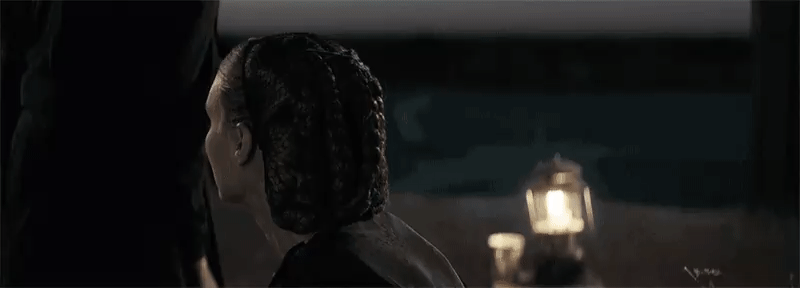
New Releases This Week:
(Review links where applicable)
Opening Buffalo-area theaters 3/24/23 -
A GOOD PERSON at Dipson Amherst, Capitol & Flix; Regal Transit
JOHN WICK: CHAPTER 4 at Dipson Amherst, Capitol, McKinley & Flix; Regal Elmwood, Transit, Galleria & Quaker; AMC Maple Ridge & Market Arcade
THE LOST KING at Dipson Amherst; Regal Elmwood, Transit, Galleria & Quaker
Thoughts are above.
RETURN TO SEOUL at North Park Theater
“This journey is less about forgiveness or hate than it is acceptance. Acceptance for her past, present, and future as well as the role she plays in all three no matter what externally unfair hand she might have been dealt.” – Full thoughts at HHYS.
SCHOOL OF MAGICAL ANIMALS at Dipson Capitol & Flix
VALKYRIE INTERNATIONAL FILM FESTIVAL at The Screening Room, 3/24 - 3/28
Streaming from 3/24/23 -
BIG MÄCK: GANGSTERS AND GOLD - Netflix on 3/30
CHOR NIKAL KE BHAGA - Netflix on 3/24
GREAT EXPECTATIONS - Hulu on 3/26
Now on VOD/Digital HD -
BLUE THERMAL (3/21)
CHILDREN OF THE CORN (3/21)
“I just wish it didn't have to be so generic. It once again seeks to sanitize source material that refreshingly embraced the futility of our struggle to survive our own attempts at self-extermination.” – Full thoughts at HHYS.
HANNAH HA HA (3/21)
KUBRICK BY KUBRICK (3/21)
OPERATION FORTUNE: RUSE DE GUERRE (3/21)
“If I could put it into a box I'd say it's his attempt at a MISSION: IMPOSSIBLE filtered through the humorous lens utilized on THE GENTLEMEN. It may not be enough to petition for a sequel, but it's a lot of fun for fans of Ritchie's usual formula.” – Full thoughts at HHYS.
WHO INVITED THEM (3/21)
WILDFLOWER (3/21)
“The script [is] cavalier at times with its subject matter, but that shouldn't be surprising since effect being positioned above cause is its modus operandi. Its first goal is to entertain and that inherently undercuts its dramatic potency.” – Full thoughts at HHYS.
RHINO: UKRAINIAN GODFATHER (3/23)
Thoughts are above.
88 (3/24)
“Why put these ideas into a fictional thriller? It only sustains the chasm between conspiracy and reality to the point where the whole feels like a satire of its own earnest motives.” – Full thoughts at HHYS.





